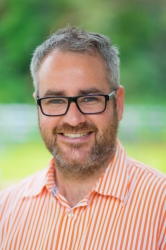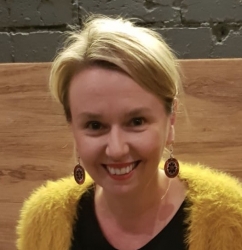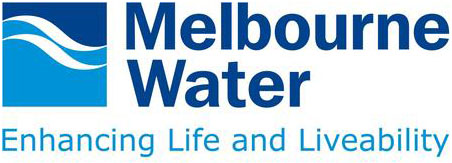news
Recipients announced for 2020 Clearwater Water Leader Scholarships

20 January 2020
Clearwater is excited to announce our 2020 Clearwater Water Leader Scholarship recipients. Our two emerging water leaders from across the state will spend the next 9 months strengthening their ability to exert influence, drive change and advance challenging integrated water management projects.
Congratulations to Kate Berg and our inaugural Clearwater Emerging Indigenous Water Leader Scholarship receiver, Michael Browne!
The successful candidates bring a diversity of skills and backgrounds, and this program will facilitate exchange of information and expertise between key organisations in the water industry.
This is a fantastic opportunity and Clearwater is excited to offer these scholarships to support the delivery of Water for Victoria, the Integrated Water Management Framework and associated IWM Forums.
Read on below to find out more about our scholarship recipients' motivations, challenges and expectations.
Clearwater Water Leader Scholarship Winners
 Michael Browne, Manager, Integrated Water Management Sub-Catchment Planning, Yarra Valley Water
Michael Browne, Manager, Integrated Water Management Sub-Catchment Planning, Yarra Valley Water
Michael is an Indigenous engineer, of the Baakandji and Wamba Wamba people, that has been employed within the water industry for 16 years.
What motivates you in your current role?
Two aspects of my current role that motivate me are:
- Planning for an uncertain future in working towards a more secure water supply. The challenges that face the water industry, and how this can influence other industries, is an area of interest that is being than just my role. Working on projects with local councils, other government authorities, Traditional Custodians and the wider community to identify objectives and solutions that could contribute towards these goals is what is exciting me.
- Assisting with the capacity building of Traditional Custodians in understanding and developing Cultural Flows. As the community recognises the importance of the First Nations peoples knowledge, incorporating their vision documented within their Cultural Flows Assessments into the future planning of the community and empowering the Traditional Custodians as they work towards self-determination in benefiting from what is happening on their Country.
What major leaderships challenges you currently face?
I have recently begun working as Manager, Integrated Water Management Sub-Catchment Planning, which is a newly created role at Yarra Valley Water. This new role will involve a team of engineers working collaboratively with internal stakeholders and external partners to develop IWM plans that can be used by planning authorities to deliver agreed objectives with a primary purpose of building sustainable communities. As an Aboriginal man, this brings together my connection to both land and water in building a future that our Ancestors would be proud of. Together with this aspect, I will be working alongside Traditional Custodians to build knowledge around self-determination as they develop Cultural Flows Assessments, which will result in Traditional Custodians being prepared and empowered to influence the planning of communities with their vision for their Country. My hope is that with this aspect of passing knowledge onto planning authorities, Traditional Custodians will be given the same legislative rights, which will then provide greater opportunities for future generations of Indigenous peoples to inform communities of what their ancestors wanted. Acknowledging that I do not live on Country, this will be me working with Traditional Custodians to identify that we are a people who will eventually stop asking for participation and preparing ourselves to be able to demand it.
How do you think the Water Leadership Program will benefit you in your role?
This leadership program will further strengthen my skills on understanding strategic directions, presenting with influence with an increased focus on water and land management, namely through integrated water management, and acknowledging the challenges in walking within two worlds; one being the professional environment and the other my cultural being. By having these skills, it will allow me to develop a greater confidence in my own abilities to influence Yarra Valley Water and other partner organisations of the importance of the Traditional Custodians knowledge and including our people in the "management" of their country. I see this as a benefit to Traditional Custodians, the current planning authorities and the future communities. It will also provide an opportunity for increased awareness of our cultural knowledge, or possibly lost knowledge, as we continue to strive towards a world of acknowledging past atrocities and moving forward together.
 Kate Berg, Senior Sustainability Officer – Climate Change Adaptation, City of Melbourne
Kate Berg, Senior Sustainability Officer – Climate Change Adaptation, City of Melbourne
Kate was born and bred in Melbourne, a stone's throw away from the Maribyrnong River. For 11 years she has worked in water corporations, state government and local government.
What motivates you in your current role?
I have recently shifted into a climate change adaptation role after 10 years in the water industry. Starting my career towards the end of the Millennium Drought has meant that the impacts of climate change are always front of mind. All climate options are on the table and how we manage water underpins how we will ultimately adapt to climate change. My aim is to apply skills learnt in this course to break traditional silos and create a cross organisational understanding that IWM and climate change adaptation are embedded in everything we do at City of Melbourne (CoM).
What major leaderships challenges you currently face?
In my role as Senior Sustainability Officer - Climate Change Adaptation, I am responsible for delivering CoM's Climate Change Adaptation Strategy. This strategy has a strong water management focus to mitigate the key climate change risks to Melbourne - increased storms, flooding, drought and heatwaves. Many of the actions are considered advocacy and partnership actions which are not within our remit to deliver. To successfully deliver on our strategy I need to influence other CoM departments, organisations and state government to take action.
We are working to deliver a water sensitive cities approach and sustainable outcomes for Fishermans Bend - Australia's largest urban renewal project. This requires a collaborative approach with the state government, the Victorian Planning Authority, CRC Water Sensitive Cities and neighbouring councils. Having enhanced leadership qualities will support me to advocate shifting the fundamental way we manage water in urban renewal areas.
How do you think the Water Leadership Program will benefit you in your role?
Many other councils and cities around the world look to CoM as a world leader. We are part of global networks such as C40 and 100 Resilient Cities that provide opportunities to learn and share knowledge on a global scale. Influencing executive leaders, councillors and state government to implement world leading ideas that we can share across Australia is my aspiration.
This is the perfect time to be influencing and driving change with a climate change lens outside traditional water sector circles. The Water Leadership Program can be specifically used through my work to update the flood overlays in the Melbourne Planning Scheme. We need to ensure we move past traditional planning approaches (i.e. inundation overlays that don't consider the increased impacts from climate change) to ensure we are using a best practice planning approach and influencing other councils to follow suit.
